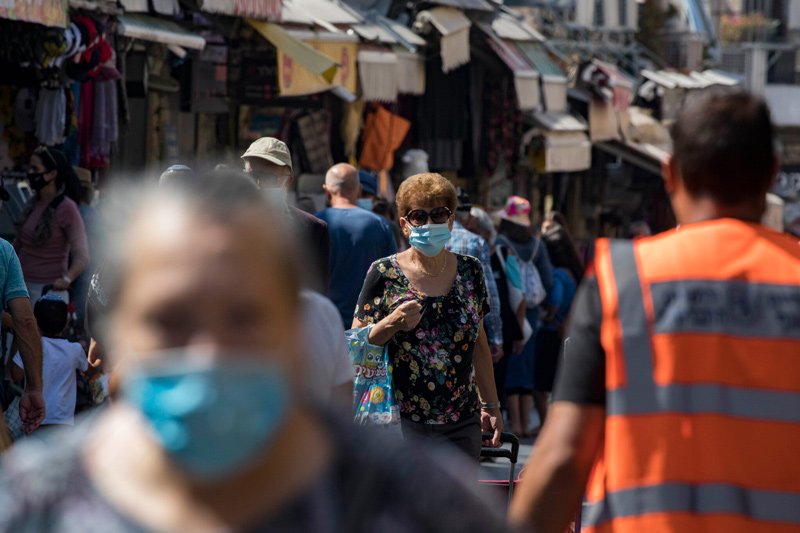

The Environmental Protection Ministry released a report Monday asserting a link between illnesses caused by air pollution and a higher death rate from coronavirus, and calling on the government to reduce emissions.
In a statement accompanying the report, the ministry noted that “exposure to air pollution causes significant illness and mortality,” especially among “vulnerable populations such as the elderly, children, pregnant women and those who suffer from chronic illnesses.”
The report, compiled by Prof. Hagai Levine, a public health expert from the Hebrew University, cites several recent studies — most of them in Italy — claiming to show a correlation between the level of air pollution in given areas and the rate of infection and death from COVID-19.
It also noted that pollution can cause and exacerbate the kind of preexisting conditions that raise the possibility of potentially lethal complications in a coronavirus infection.
Most of the studies have not been peer reviewed and some experts say there is not yet enough data to provide a clear direct link between pollution and COVID-19 fatality rates.
Levine also noted the sharp drop in air pollution brought on by the strict lockdown measures enacted by governments worldwide in an effort to contain the coronavirus outbreak, and assessed that these moves were saving lives, likely even “above and beyond the rise in the cases of death due to the coronavirus.”
Still, the report cautioned, citing the example of China, air pollution levels could quickly return to their previous levels in countries where the lockdown was eased, unless concrete steps were taken.

It thus urged the government to commit to longer-term measures to cut down on emissions of particulates — especially diesel fumes and nitrogen dioxide — to ease congestion in hospitals and reduce the mortality rate from COVID-19 and other conditions.
“Reducing air pollution will improve the State of Israel’s preparedness for coronavirus by, among other things, freeing up intensive care and hospital beds, as well as ventilators and critical medical staff,” the ministry statement said.
The level of emissions per capita in Israel has dropped from 10.5 tons in 2010 to 9.7 tons in 2017. Under the 2015 Paris Accords, Israel pledged to reduce its global warming gases to 8.8 tons by 2025 and 7.7 tons by 2030.
According to a Bank of Israel research paper released last month, Israel will fulfill the pledges if the Energy Ministry moves from coal-fired power stations to natural gas ones by 2024 and reaches its aim of 30% energy from renewable sources by 2030.
The Environmental Protection Ministry noted that fewer emissions could have “immense economic implications, by raising the critical threshold of treatment capacity, so that can take steps that are less strict and less damaging to the economy .”
Noting the high probability of a further surge in coronavirus infections in the coming months, the report recommended a series of steps to reduce pollution. Among these were barring diesel vehicles from the the centers of cities, transitioning to electrical engines for public transportation, and implementing in full an existing plan for reducing polluting emissions from industry.
“The link between air pollution and the coronavirus is becoming increasingly clear,” Environmental Protection Minister Gila Gamliel said. “It is our duty to take action to cut air pollution in population centers, so that we can be better prepared for future epidemic outbreaks.
“Air pollution causes sickness and death, and I intend to concentrate efforts to improve air quality in Israel,” she added.